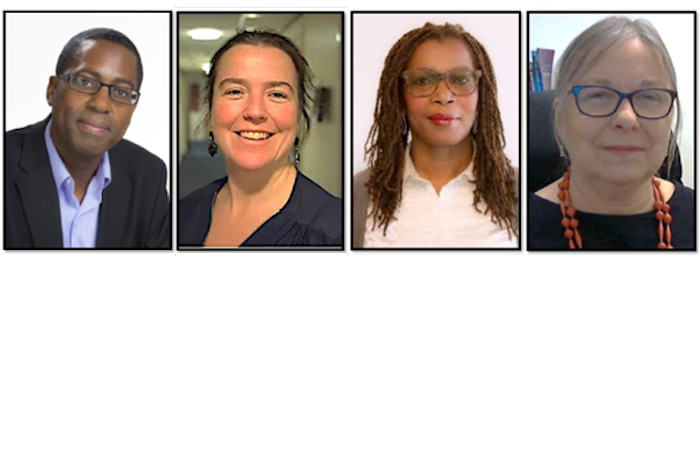
EDI Matters: Responding inclusively to transition and recovery
Authors: Patrick Johnson, Head of EDI, Rachel Cowen, Dawn Edge and Alys Young, University Equality, Diversion and Inclusion (EDI) Academic Leads,
Life for all of us is very different from five months ago. The COVID-19 pandemic, nationwide lockdown and its partial lifting have created significant personal, operational and financial challenges for our entire University community.
There is no doubt that we have all had to adapt to new ways of working, studying and living. However, what is also becoming clear is that for some people the associated health risks and negative impact of this pandemic have been greater and could potentially last much longer. As we work towards full recovery we need to ensure a range of knowledge, perspectives and opinions, based on diversity of experience, thought and background form part of our transition and recovery planning.
Understanding the differential impact of Covid
Public health data shows that certain groups are more susceptible and are at greater risk from COVID-19 including older people, men, Black Asian and Minority Ethnic (BAME) people, disabled people, and others with underlying health conditions. Emerging evidence also shows that indirect consequences of COVID-19 such as social distancing and changes in our ways of working, interacting and socialising are having a differential impact on some groups, especially those with Protected Characteristics (Equality Act, 2010) A report by the National Association of Disabled Staff Networks has drawn attention to the heightened anxiety for Disabled staff and students due to the pressure to disclose ‘underlying health conditions’, online accessibility issues and returning to campus (NADSN, 2020). In terms of caring responsibilities, a study conducted at UCL has found that mothers are more likely to have left paid work; have seen a bigger proportional reduction in hours of work and those working at home are more likely to be simultaneously trying to care for children (Andrew et al, 2020). Concerns have also been raised about the increased risk of harassment, hate crime, domestic abuse and technology mediated violence and abuse (UUK, 2020).
COVID-19 has shone a spotlight on inequalities in terms of those most susceptible to the virus, who has recovered from it and who has been most significantly impacted by it physically, emotionally and economically. These challenges do not operate in isolation in fact they intersect with each other and exacerbate existing health and social inequities that already exist in society and that are reflected across Higher Education. That’s why we are strengthening our efforts to ensure we fully consider the equality implications of COVID-19 for our entire University community and how as an institution we can utilise our expertise to support our wider community.
Supporting our University community
As we entered lockdown our Equality, Diversity and Inclusion Committees in the Faculties and Professional Services were keen to understand the potential impact on different groups. A survey was launched which has informed a paper ‘An Inclusive Transition and Recovery’ presented to our newly formed Equality, Diversity and Inclusion Governance Group. This paper and feedback from the survey were also highlighted as part of the University’s annual Equality, Diversity and Inclusion report delivered to the Board of Governors at their recent meeting. Both the Board of Governors and the EDI Governance Group are committed to ensuring that we take an inclusive approach to our transition and recovery.
As a member of the Transition Steering Group, our Vice President for Social Responsibility Professor Nalin Thakkar has strategic oversight to ensure that as a University we respond inclusively to the continuing consequences and impacts of the COVID-19 pandemic. Supported by the Equality Diversity and Inclusion Team, members of the Strategic Change Office will ensure that each Transition and Recovery Group will conduct an Equality Impact Assessment (EIA) in respect to its operational planning and delivery. In addition to data analysis this will include feedback from the University EDI COVID survey and pro-active consultation though staff network groups, Diversity and Inclusion Student Ambassadors and the What Works survey to identify potential differential impacts.
We recognise that an intersectional approach is required, one that takes into account of how the COVID-19 pandemic has impacted particular groups whilst at the same time appreciates that a person’s experiences are shaped by multiple interconnecting factors. This approach needs to be pro-active and sensitive to the structural barriers and interpersonal bias that people might have experienced in the past that could prevent them from feeling able to raise concerns or discuss particular circumstances. Therefore, we want to hear about your experiences and develop effective guidance and support structures that assist our operational activity and prevent further marginalisation.
Have your say
Our EDI COVID survey will remain open throughout the transition and recovery phase so that we can gather emerging challenges in real time and respond to them. We encourage you to give us your feedback and complete the survey as many times as you need to and help direct our plans. How has the pandemic affected or impacted you? Have you felt disadvantaged in any way? Do you have ideas or solutions to deal with the issue?
We want to listen to the lived experiences across a diverse range of staff and students so our plans are effective as possible. The work that we are undertaking now and the processes that we are putting in place will help inform our plans to develop our Equality, Diversity and Inclusion Strategy and bring together our work towards our Race Equality Charter Mark, Athena Swan Gender Equality Awards, the Stonewall Equality Index and the Disability Standard and continue to strengthen our work in this area for the long term.
This is a challenging time for the University but by embracing Equality, Diversity and Inclusion we will recover better and more quickly and will accelerate progress towards an inclusive culture where everyone feels they belong and can thrive.
For further information and support visit the EDI COVID-19 webpage



0 Comments